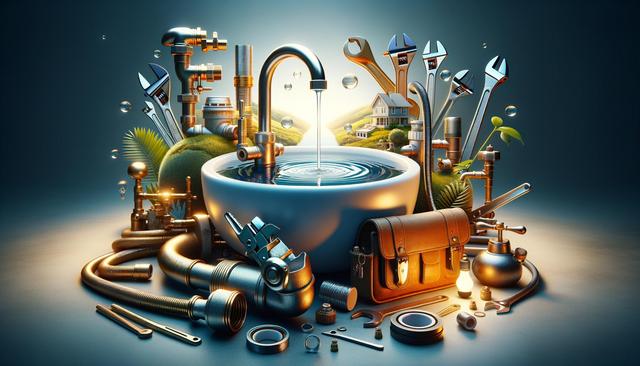Understanding the Role of an Emergency Plumber
When water is pouring from a burst pipe or your toilet won’t stop overflowing, an emergency plumber becomes your first call. These professionals are equipped to handle urgent situations that pose immediate risks to your home and health. Unlike regular service calls, emergency plumbing often requires immediate response, specialized tools, and a well-rounded skill set. Knowing the difference between routine and emergency plumbing helps you determine when to reach out for immediate help.
Emergency plumbers typically offer 24/7 availability and have the experience to manage high-pressure situations efficiently. Their responsibilities often include:
- Stopping leaks and water damage quickly
- Unclogging severe blockages
- Repairing broken or frozen pipes
- Restoring water flow to critical fixtures
When searching for an “Emergency plumber,” it’s important to choose someone with a proven track record of reliable service, especially during off-hours. Reviews and response time are key indicators of reliability and professionalism.
Finding the Right Professional: What to Look For
Searching for the “Best Plumber near me” or “plumbing services near me” can yield countless results, but not all providers offer the same level of expertise or customer care. Here’s how to filter through the noise and find the right fit for your needs. Start by checking for licensing and insurance. A licensed plumber is more likely to adhere to industry standards and local codes, reducing the risk of faulty repairs.
Next, evaluate the plumber’s experience and range of services. Some plumbers specialize in residential work while others focus on commercial systems. Look for providers who offer a comprehensive list of plumbing services, including both routine maintenance and emergency support. Key factors to consider include:
- Transparent pricing and estimates
- Customer testimonials and online ratings
- Availability for emergency or same-day service
- Guarantees or warranties on work completed
Asking the right questions can also help you narrow down your options and avoid unpleasant surprises once work begins. It’s always a good idea to confirm what’s included in the service call before the plumber arrives.
Types of Plumbing Services You Might Need
Plumbing encompasses a wide range of issues, from minor annoyances to major system overhauls. Whether you’re dealing with a dripping faucet or planning a bathroom renovation, knowing what services are available can help you choose the right professional. Basic “Plumbing repair services” often include fixing leaks, unclogging drains, and repairing water heaters.
On the other hand, more complex tasks fall under “Plumbing installation services.” These might include installing new pipes, water filtration systems, or fixtures during a remodel. A skilled plumber should be able to walk you through the process, provide accurate estimates, and ensure all work complies with local regulations.
When issues aren’t immediately visible, you may need to request “Leak detection services.” These involve using specialized tools to locate hidden leaks behind walls, under floors, or within ceilings. Addressing these problems early can prevent structural damage and costly repairs down the line.
Preventive Measures to Avoid Plumbing Emergencies
Though emergency plumbing services are essential, prevention is always more cost-effective. Regular maintenance and inspections can go a long way in avoiding sudden breakdowns and water damage. Many homeowners overlook early signs of plumbing issues, such as slow drains or odd smells, until they escalate into larger problems.
Some preventive steps you can take include:
- Scheduling annual plumbing inspections
- Replacing old or corroded pipes
- Insulating exposed pipes during winter
- Using drain screens to prevent clogs
Working with a trusted plumbing professional for regular maintenance can help you catch issues early. Many companies that offer “Plumbing repair services” also provide maintenance packages or service plans, which can be a smart investment for long-term peace of mind.
Being proactive also means knowing where your home’s main water shut-off valve is located. In the event of a major leak, turning off the water supply quickly can significantly reduce damage before the plumber arrives.
How to Prepare for a Plumbing Service Visit
Once you’ve contacted a plumbing professional, a bit of preparation can help the visit go more smoothly. Clear the area around the affected fixture or pipe to give the plumber easy access. If possible, make a list of all the issues you’ve noticed. This helps the plumber diagnose the problem faster and more accurately.
If you’re expecting work related to “Plumbing installation services,” be ready to discuss your goals and preferences. Providing photos or examples of what you want can help avoid confusion and ensure better results. For more technical services like “Leak detection services,” it’s helpful to let the plumber know about any changes in water pressure, unexplained wet spots, or higher-than-usual water bills.
Being present during the service visit allows you to ask questions and gain a better understanding of the issue and the recommended solution. It also gives you the opportunity to request advice on how to prevent similar issues in the future.
Communication is key. A good plumber will explain the problem, outline your options, and provide a clear estimate before starting any work. Being prepared not only speeds up the process but also builds trust and ensures you get quality service.




Leave a Reply